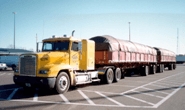Analysis

June 5, 2020
INVEST in America Infrastructure Bill Falls Short for Some
Written by Sandy Williams
The House has proposed an infrastructure bill that would provide $494 billion over the next five years to improve the nation’s highways, rails and transit systems. The INVEST in America Act includes $319 billion for highway investment, $105 billion for transit agencies, $10 billion for motor vehicle safety and $60 billion for rail investment. The measure faces much debate and uncertain passage.
“The bulk of our nation’s infrastructure—our roads, bridges, public transit and rail systems, the things that hundreds of millions of American families and businesses rely on every single day—is not only badly outdated, in many places it’s downright dangerous and holding our economy back,” said Peter DeFazio (D-OR), chairman of the House Committee on Transportation and Infrastructure. “The INVEST in America Act is our opportunity to replace the outdated systems of the past with smarter, safer, more resilient infrastructure that fits the economy of the future, creates millions of jobs, supports American manufacturing, and restores U.S. competitiveness.”
Fact sheet Bill summary Bill text
Republicans on the Committee criticized the partisan nature of the bill and their lack of opportunity to address Republican priorities.
Reps. Sam Graves (Mo.), Rodney Davis (Ill.), and Rick Crawford (Ark.) said in a statement: “Today’s partisan bill lacks critical flexibility for the states, its outsized funding increases for urban areas will leave rural America even further behind, and numerous new green mandates and extreme progressive goals are woven throughout the fabric of new and existing core programs. We also need to consider what our economy is going through because of the COVID-19 pandemic. Many of America’s workers, including those in the transportation sector, continue to grapple with our new, complex, and evolving reality. We believe a rapid seismic shift in our transportation programs will add to the already considerable uncertainty in an industry struggling for its survival.”
Release of the proposed bill was an appreciated first step, said trucking and rail associations, but more work is needed before a final draft is ready.
“This draft legislation contains significant investment in our country’s roads and bridges. And while we may not agree on every provision therein, this is a real and commendable step on the part of the committee to advance the process in the House and ultimately arrive at a negotiable solution with the Senate,” said ATA President and CEO Chris Spear.
“Roads and bridges are not Democrat or Republican. We all drive on them. For the 7.7 million Americans in trucking who do their job each day to move our economy forward, we ask members of Congress to do theirs—and pass a bipartisan infrastructure bill that meets the urgent needs of our economy, our industry and the motoring public.”
The American Association of Railroads expressed disappointment in the bill and said that Congress can do better.
“America’s railroads are extremely disappointed in the House surface transportation reauthorization released today,” said AAR President and CEO Ian Jeffries. “When all of us should be working together toward common sense solutions, this partisan legislation falls far short of what this moment demands.
“Smart policies have helped railroads continue to deliver for their customers during this pandemic. Now is not the time to retreat from these, much less impose wish list policy riders or unnecessary operational requirements such as mandating crew size, barring the streamlining of operations and constraining the already limited capacity of the rail network. Now more than ever – we can and must do better together.”






